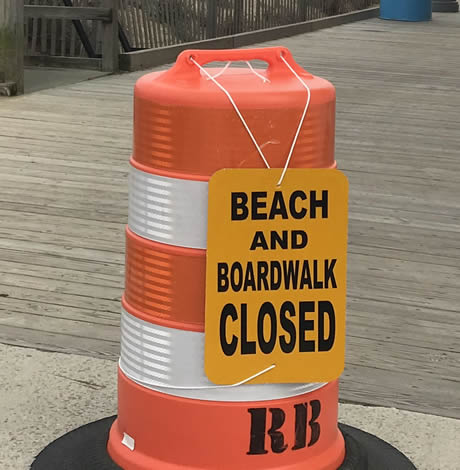Financial
Give your agent some R-E-S-P-E-C-T
Relationships centered around real estate can be complicated

A real estate transaction is just as much a human exchange as a business transaction complete with emotions, potentially discordant personalities, constant dialogue and a high stakes financial investment. It can be easily complicated by misunderstandings and can have serious long-term financial implications.
So it’s extremely helpful to have an agent represent you as a buyer. A buyer’s agent is a professional who ensures your needs are being met, that your rights have not been ignored and that your purchase is made with as much disclosure as possible. Their commission is paid by the sellers, but at times their role is to represent the position most at odds with those of the seller.
Sometimes, their efforts to work on behalf of the buyer may even end up canceling the whole transaction. Without the help of a buyer’s agent, many buyers would purchase homes for too much money, without enough insight as to the property’s condition and could even lose their earnest money deposits due to their inability to close the deal on their own.
When working with an agent, though, it’s important to observe some etiquette ground rules. Your agent will work best with you if there is a balance between the two of you based on respect. If you don’t show your agent the respect you would appreciate for yourself, his or her motivation to work as hard as possible for you may be undermined. Some of these easy ground rules are as follows:
Remember your agent is a human being. Humans are capable of amazing accomplishments, but they are also capable of mistakes. Don’t hold it against an agent if he or she makes a small honest error, unless it’s one that costs you a lot of money. Forgetting to return a casual email is an honest error, but missing a deadline to cancel a contract is a biggie.
Also remember that humans need to eat, sleep and have a life aside from real estate. Unless you have previous arrangements with your agent, or unless it’s truly urgent, try not to call your agent before 9 a.m. or after 9 p.m. Don’t fault your agent for taking a weekend off every now and then, or taking a vacation, even when you’re in the middle of a transaction. Just make sure your agent lines up a support system for you while he or she is away so you aren’t completely on your own.
Don’t cheat on your agent. Agents work long hours without the guarantee of a paycheck and often without even the guarantee of your business. It’s only fair, then, that you stay committed to an agent who has already worked hard for you. When you choose to engage an agent in your home search, sign an agency relationship agreement, even if it’s for a short duration. That gives your agent the confidence that you will give him or her a fair shot at keeping your business long-term and will encourage the agent to work hard on your behalf. Extend the agreement term when you’re confident that your agent and you are a good fit, and in the meantime, don’t ask other agents to work on your behalf. Technically, you should only call your agent with questions about any property, too.
If it doesn’t work, it doesn’t work. Nobody should be expected to get married on the first date, so if you’ve worked with an agent exclusively for long enough to know it won’t work, it’s OK to say goodbye. Just make sure you honor the terms of your agency relationship, and if you want out early, just ask nicely to be released. If things get hairy, call your agent’s office manager to discuss your options.
Agents need to have more than one client to survive. Unless you’re buying an embassy, it’s unlikely the commission from your paycheck would be able to sustain your agent’s livelihood on its own. Be understanding when your agent can’t accommodate your schedule every now and then due to other client obligations and try to be flexible with times that work for you. Most agents work such that they may be called at a moment’s notice for a showing, even after hours and on weekends. Every now and then they may have another client when you wish to see a property, so be patient if the plan must be postponed or be willing to get up early or take a lunch break the next day for a viewing, rather than seeing it one evening earlier.
These ground rules may make it seem like you should be completely accommodating if your agent makes mistakes, won’t show you property and doesn’t have time for you in general. On the contrary, it is simply a reminder that if these things happen every now and then, they should not be deal breakers.
You have rightful expectations as well, and if ever you are working with an agent who is less professional and more lazy, you should feel no compunction asking to cancel your arrangement and moving on. Ultimately, your standing in the transaction should be benefited by the role of your agent, but if it’s not, it’s OK to cut the cord.
David Bediz is a top-producing agent at Coldwell Banker, a founder of the Dwight & David Group, and director of the board of GCAAR. He can be reached at 202-352-8456 or dwightanddavid.com.
Real Estate
2026: prices, pace, and winter weather
Lingering snow cover, sub-freezing temperatures have impacted area housing market

The D.C. metropolitan area’s housing market remains both pricey and complex. Buyers and sellers are navigating not only high costs and shifting buyer preferences, but also seasonal weather conditions that influence construction, inventory, showings, and marketing time.
Seasonality has long affected the housing market across the U.S. Activity typically peaks in spring and summer and dips in winter; however, January and February 2026 brought unusually cold spells to our area, with extended freezing conditions.
Persistent snow and ice-covered roads and sidewalks have gone for days, and in some cases weeks, before melting. While snow accumulation normally averages only a few inches this time of year, this winter saw below-normal temperatures and lingering snow cover that has significantly disrupted normal activity.
Rather than relying on neighborhood teenagers to shovel snow to make some extra money, the “snowcrete” has required ice picks, Bobcats, and snow removal professionals to clear streets and alleys, free our cars from their parking spaces, and restore availability of mass transit.
These winter conditions have had an adverse impact on the regional housing market in several ways.
- Construction slowdown: New builds and exterior improvements often pause during extended cold, resulting in delayed housing starts when we need affordable housing in the worst way.
- Listing preparation: Cleaning crews, sign installers, photographers, and stagers with trucks full of furniture may be unable to navigate roads and need to postpone service.
- Showings and open houses: Simply put, buyers are less inclined to schedule visits in hazardous conditions. Sellers must ensure walkways and parking areas are clear and de-iced and be able to vacate the property while viewings are taking place.
- Inspection and appraisal delays: Like buyers and sellers, ancillary professionals may be delayed by unfavorable weather, slowing timelines from contract to close.
- Maintenance and repairs: Properties with winter damage (e.g., ice dams or frozen pipes) may experience repair delays due to contractor availability and supply chain schedules. Snow and cold can also affect properties with older and more delicate systems adversely, leading some sellers to delay listing until better conditions arrive.
- Availability of labor: Increasingly, construction, landscaping, and domestic workers are reluctant to come into the District, not because of ice, but because of ICE.
Overall, the District has shown a notable increase in days on the market compared with past years. Homes that once sold in a week or less are now often listed for 30+ days before obtaining an offer, especially in the condominium and mid-range house segments. While part of this shift can be attributed to weather and climate, interest rates, uncertain employment, temporary furloughs, and general economic conditions play key roles.
Nonetheless, we continue to host some of the region’s most expensive residences. Historic estates, including a Georgetown mansion that sold for around $28 million, anchor the luxury segment and reflect ongoing demand for premium urban property.
But even in this high-end housing sector, marketing strategies are evolving based on seasonal realities. Price reductions on unique or niche properties, such as undersized or unconventional homes, reflect a broader market adjustment where competitive pricing can shorten selling time.
For example, a beautifully renovated, 4-story brick home with garage parking and multiple decks that overlook the Georgetown waterfront sold in early February for 90 percent of the list price after 50 days on the market.
At the other end of the spectrum, a 2-bedroom investor-special rowhouse in Anacostia only took eight days to sell for under $200,000, down 14 percent from its original list price. In addition, four D.C. homes took more than 250 days to sell, including an 8-bedroom rooming house that was on the market for 688 days and closed after a 23 percent downward price adjustment.
Some frustrated sellers are simply taking their homes off the market rather than dropping prices below their mortgage balances, although we are beginning to see the resurgence of short sales for those who must sell.
Condominiums and cooperatives offer many opportunities for buyers and investors, with 1,100 of them currently on the market in D.C. alone. List prices run the gamut from $55,000 for a studio along the Southwest Waterfront to nearly $5 million for five bedrooms, four full baths, and 4,400 square feet at the Watergate.
So, while Washington metro area prices remain high, the pace of sales now reflects both seasonal and economic realities. Homes taking longer to sell, in part caused by elements of winter, signal a shifting market where buyers can take more time to decide which home to choose and have a better negotiating posture than in recent years.
Accordingly, sellers must continue to price strategically, primp and polish their homes, and prepare for additional adverse circumstances by reviewing fluctuating market conditions with their REALTOR® of choice.
Valerie M. Blake is a licensed Associate Broker in DC, MD & VA with RLAH @properties. Call or text her at (202) 246-8602, email her at [email protected] or follow her on Facebook at TheRealst8ofAffairs.

Valentine’s Day is often portrayed as a celebration of romantic love — flowers, chocolates, and candlelit dinners. But for many LGBTQ+ individuals and couples, Valentine’s Day can also be a moment to reflect on something deeper: the love that creates a safe, welcoming home.
For LGBTQ+ home buyers and sellers, homeownership is more than a financial milestone—it is an act of belonging, resilience, and pride. Owning a home can mean finally having a place where you can hold hands with your partner on the front porch, decorate with your authentic style, and build a life free from judgment. In this way, buying or selling a home is one of the most meaningful love stories many LGBTQ+ people will ever write.
This Valentine’s Day, whether you’re a first-time gay home buyer, a same-sex couple upgrading your space, or an LGBTQ+ seller moving on to your next chapter, it’s worth thinking about how love, identity, and real estate intersect—and how to navigate that journey with confidence, protection, and the right support.
Love, Identity, and the Meaning of ‘Home’
For generations, LGBTQ+ people were denied equal access to housing, homeownership, and legal protections. Even today, many LGBTQ+ home buyers still face subtle bias, uncomfortable interactions, or outright discrimination in the real estate process.
That’s why finding LGBTQ+ friendly real estate and an affirming gay friendly realtor or lesbian realtor matters so much. A home isn’t just a building—it’s a personal sanctuary. Working with LGBTQ+ real estate agents who understand your lived experience can make all the difference between a stressful transaction and a joyful one.
For over 30 years, GayRealEstate.com has been the leading gay real estate network, connecting LGBTQ+ home buyers and sellers with gay real estate agents, lesbian real estate agents, and LGBTQ+ friendly realtors who truly “get it.” Their mission has always been simple yet powerful: to ensure that every LGBTQ+ person has access to safe, respectful, and inclusive real estate services.
Finding Your Match: Choosing the Right LGBTQ+ Friendly Realtor
Much like dating, finding the right real estate agent is about compatibility, trust, and communication. Here are some key tips for choosing the best LGBTQ+ real estate representation:
- Look for experience with LGBTQ+ clients. Search for a gay realtor near me or lesbian realtor near me through GayRealEstate.com, where agents are vetted for cultural competency and community commitment.
- Ask about their experience with same-sex couple home buying. A strong agent should understand issues like joint ownership, legal protections, and financing considerations.
- Choose someone who listens. You should feel safe sharing your priorities—whether that includes proximity to LGBTQ+ nightlife, affirming schools, or lesbian-friendly neighborhoods.
- Prioritize respect and transparency. Your agent should advocate for you, not just push a quick sale.
The right gay friendly real estate agent isn’t just helping you buy a house—they’re helping you find a place to build your life.
Best Cities for LGBTQ+ Home Buyers
If love is your compass, location is your map. Some of the best cities for LGBTQ+ home buyers consistently offer strong community presence, legal protections, and welcoming neighborhoods:
- Wilton Manors, Florida – A hub for LGBTQ+ culture with thriving LGBTQ+ real estate opportunities
- Palm Springs, California – A long-standing LGBTQ+ retirement and second-home destination
- Provincetown, Massachusetts – Historic LGBTQ+ community with progressive housing protections
- Asheville, North Carolina – Growing market with inclusive real estate services
- Fort Lauderdale, Florida – Diverse, welcoming, and highly sought-after for LGBTQ+ home ownership
Working with GayRealEstate.com allows you to connect with local LGBTQ+ real estate experts who know these markets inside and out.
Navigating Legal Protections in LGBTQ+ Real Estate
Love is universal—but legal protections are not always consistent. Understanding your rights is essential when buying or selling a home as an LGBTQ+ person.
Key protections include:
- Fair Housing Act (FHA): Prohibits discrimination based on sex, which courts have increasingly interpreted to include sexual orientation and gender identity.
- State and local protections: Many cities and states offer additional safeguards against LGBTQ+ housing discrimination.
- Same-sex couple legal considerations: If you are married, joint ownership is typically straightforward. If not, consult an attorney about co-ownership agreements.
A knowledgeable LGBTQ+ friendly realtor from GayRealEstate.com can help guide you through these complexities and connect you with trusted legal professionals when needed.
Buying a Home as an LGBTQ+ Person: Practical Tips
If you’re embarking on your home-buying journey this Valentine’s season, here are smart, practical steps to take:
- Clarify your priorities. Do you want a vibrant LGBTQ+ neighborhood, quiet suburbs, or access to queer community spaces?
- Get pre-approved for a mortgage. This strengthens your position in competitive markets.
- Work with an LGBTQ+ real estate agent. Searching “finding a gay real estate agent” or “finding a lesbian real estate agent” through GayRealEstate.com is a great first step.
- Research inclusive communities. Some neighborhoods are more welcoming than others.
- Know your rights. If you experience bias, document it and seek legal guidance.
Buying a home is an act of self-love—and community love.
Selling a Home as an LGBTQ+ Person
Selling can be just as emotional as buying, especially if your home represents years of memories with your partner, friends, or chosen family.
When selling a home as an LGBTQ+ person, consider:
- Working with a gay friendly realtor who will market your home inclusively
- Highlighting LGBTQ+ community appeal in listings
- Being prepared for potential buyer bias (and knowing how to respond)
- Leaning on GayRealEstate.com’s LGBTQ+ real estate services for trusted guidance
Your story—and your home—deserve respect.
Real Estate for LGBTQ+ Families
More LGBTQ+ couples are raising children, fostering, or building blended families. This makes homeownership even more meaningful.
When searching for real estate for LGBTQ+ families, consider:
- LGBTQ+ affirming school districts
- Family-friendly queer communities
- Safe neighborhoods with inclusive values
- Access to LGBTQ+ resources and social networks
GayRealEstate.com specializes in helping LGBTQ+ families find homes that truly fit their lives.
Love, Pride, and Homeownership
At its core, Valentine’s Day is about connection. For LGBTQ+ people, homeownership can be one of the most profound expressions of love—love for yourself, your partner, your family, and your future.
Whether you are a first-time gay home buyer, a same-sex couple relocating, or an LGBTQ+ seller moving forward, you deserve an experience rooted in dignity, fairness, and celebration.
For over three decades, GayRealEstate.com has stood as the leading source for LGBTQ+ real estate, gay real estate, lesbian real estate, and LGBTQ+ home buying and selling representation. Their nationwide network of gay real estate agents, lesbian-friendly real estate agents, and LGBTQ+ friendly realtors ensures that your real estate journey is guided by professionals who understand your heart—and your home.
This Valentine’s Day, let your next chapter be written in a place where you can truly belong. Because when love leads the way, home is never far behind.
Scott Helms is president and owner of Gayrealestate.com.
Real Estate
New year, new housing landscape for D.C. landlords
Several developments expected to influence how rental housing operates

As 2026 begins, Washington, D.C.’s rental housing landscape continues to evolve in ways that matter to small landlords, tenants, and the communities they serve. At the center of many of these conversations is the Small Multifamily & Rental Owners Association (SMOA), a D.C.–based organization that advocates for small property owners and the preservation of the city’s naturally occurring affordable housing.
At their December “DC Housing Policy Summit,” city officials, housing researchers, lenders, attorneys, and housing providers gathered to discuss the policies and proposals shaping the future of rental housing in the District. The topics ranged from recent legislative changes to emerging ballot initiatives and understanding how today’s policy decisions will affect housing stability tomorrow.
Why Housing Policy Matters in 2026
If you are a landlord or a tenant, several developments now underway in D.C., are expected to influence how rental housing operates in the years ahead.
One of the most significant developments is the Rebalancing Expectations for Neighbors, Tenants and Landlords (RENTAL) Act of 2025, a sweeping piece of legislation passed last fall and effective December 31, 2025, which updates a range of housing laws. This broad housing reform law will modernize housing regulations and address long-standing court backlogs, and in a practical manner, assist landlords with shortened notice and filing requirements for lawsuits. The Act introduces changes to eviction procedures, adjusts pre-filing notice timelines, and modifies certain tenant protections under previous legislation, the Tenant Opportunity to Purchase Act.
At the same time, the District has expanded its Rent Registry, to have a better overview of licensed rental units in the city with updated technology that tracks rental units subject to and exempt from rent control and other related housing information. Designed to improve transparency and enforcement, Rent Registry makes it easier for all parties to verify rent control status and compliance.
Looking ahead to the 2026 election cycle, a proposed ballot initiative for a two-year rent freeze is generating significant conversation. If it qualifies for the ballot and is approved by voters, the measure would pause rent increases across the District for two years. While still in the proposal phase, it reflects the broader focus on tenant affordability that continues to shape housing policy debates.
What This Means for Rental Owners
Taken together, these changes underscore how closely policy and day-to-day operations are connected for small landlords. Staying informed about notice requirements, registration obligations, and evolving regulations isn’t just a legal necessity. It’s a key part of maintaining stable, compliant rental properties.
With discussions underway about rent stabilization, voucher policies, and potential rent freezes, long-term revenue projections will be influenced by regulatory shifts just as much as market conditions alone. Financial and strategic planning becomes even more important to protect your interests.
Preparing for the Changes
As the owner of a property management company here in the District, I’ve spent much of the past year thinking about how these changes translate from legislation into real-world operations.
The first priority has been updating our eviction and compliance workflows to align with the RENTAL Act of 2025. That means revising how delinquent rent cases are handled, adjusting notice procedures, and helping owners understand how revised timelines and court processes may affect the cost, timing, and strategy behind enforcement decisions.
Just as important, we’re shifting toward earlier, more proactive communication around compliance and regulatory risk. Rather than reacting after policies take effect, we’re working to flag potential exposure in advance, so owners can make informed decisions before small issues become costly problems.
A Bigger Picture for 2026
Housing policy in Washington, D.C., has always reflected the city’s values from protecting tenants to preserving affordability in rapidly changing neighborhoods. As those policies continue to evolve, the challenge will be finding the right balance between stability for renters and sustainability for the small property owners who provide much of the city’s housing.
The conversations happening now at policy summits, in Council chambers, and across neighborhood communities will shape how rental housing is regulated. For landlords, tenants, and legislators alike, 2026 represents an opportunity to engage thoughtfully, to ask hard questions, and to create a future where compliance, fairness, and long-term stability go hand-in-hand.

















